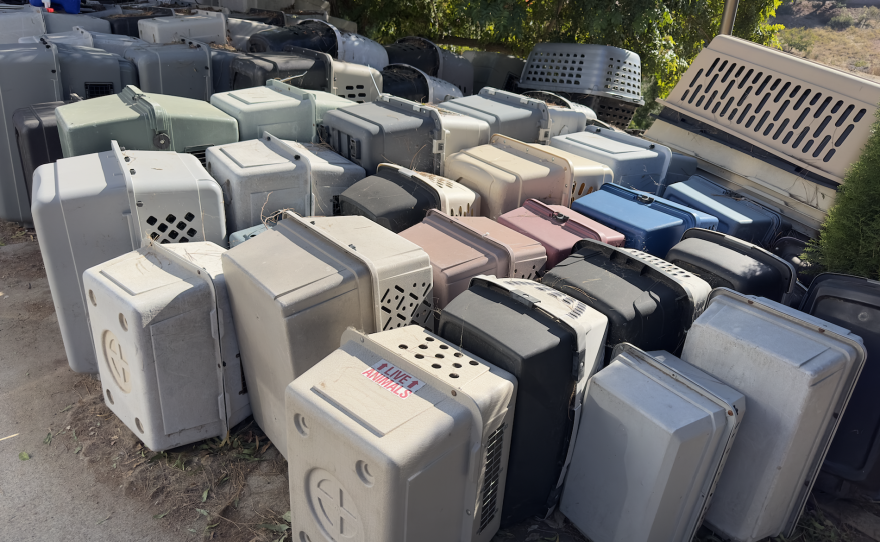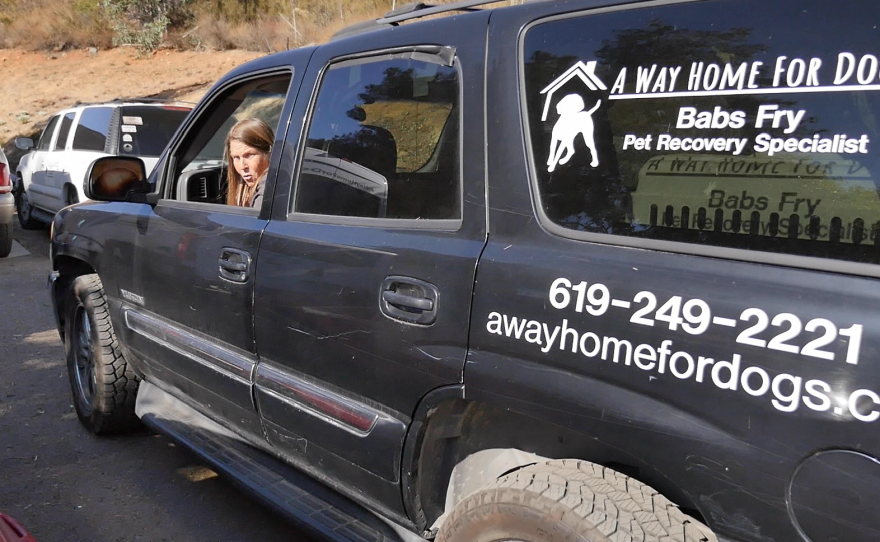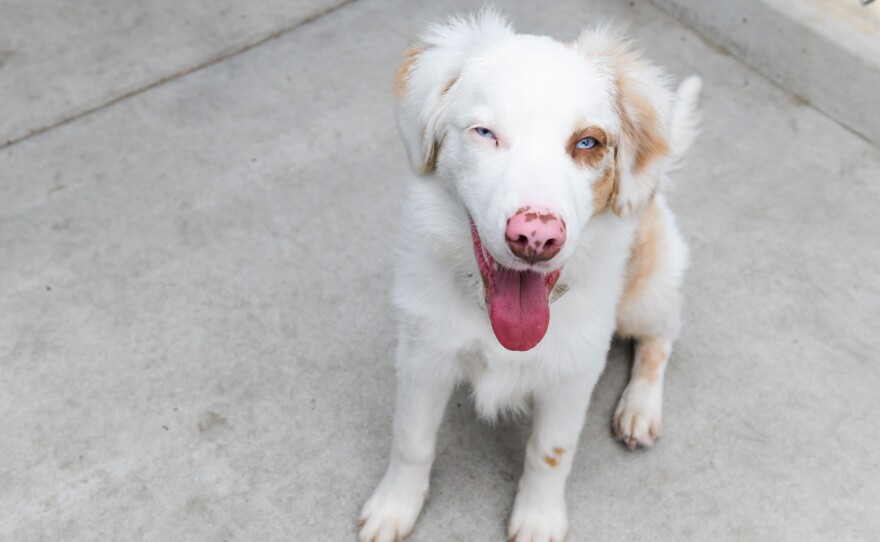For most people it can feel like the worst moment in time when a beloved pet is lost. But Pet Recovery Specialist Babs Fry says hope is not lost just because a pet goes missing.
“A lot of people like to call me 'Pet Detective,' but that's Ace Ventura, and that is not me,” Fry said. “Ultimately, what I do is I help people recover their lost pets. And as a by-product of that, also support the community and animal control agencies in capturing dogs at-large that nobody can recover.”
While a pet detective she is not, to many she is an unsung hero. She runs “A Way Home For Dogs”, and says catching a dog at-large is nothing like the old cartoons of chasing it down with a net.
“You know, you've got to collaborate sightings. You've got to track common behaviors, patterns. I have cellular cameras I put in the field. I solicit the support of private parties to let me put traps on their property,” Fry said.
Like a recipe, she says the ingredients, or her instructions, are specifically selected for each individual situation.
“I need to let you know that the very first thing I'm going to do is tell you what you don't want to hear, but you need to stop looking for that dog. And that's very, very, very important,” Fry informed a desperate caller. “I can hear that you're crying. Please understand. I'm not telling you to quit, okay?”
She cuts through the emotion with the sole purpose of setting up a successful recovery plan.
“In the meantime, take one of your dirty socks, turn it inside out and get it in a tree in front of your house” Fry instructs the caller. “You can take poop from one of the dogs that she gets most excited to see, and smear that on a tree.”

Fry suggests using identifying odors to draw the dog back to familiar territory. The higher the personal item is placed the more the wind will carry the scent, like an isolated GPS marker.
“That dog will not starve, 100% for decades, will not starve, will not die of dehydration, and will not die of the elements. It's an animal. The minute she left your care, she went to raw, instinctual responses,” Fry reassures the caller.
Fry says she is not known for her people skills. “You either love or you hate me. I'm not here to make you feel better,” she says. “I’m not emotionless. I cry a lot about these dogs.”
She strives, instead, to be effective by educating people about their mistakes. “That's the truth. I'm not a people person. I don't like people. I really would be okay to not have to interact with people. I do this for the dogs,” said Fry.
Dogs are her world. While catching them is what she is known for, she also runs a rescue that is almost three times beyond its capacity. A problem, she says, that was created by the pandemic.
“I think COVID started it. It provided people an opportunity to get dogs when they wouldn't have otherwise,” said Fry.
She says she is catching more dogs now that know commands like sit and stay; a sign that they were potentially released by owners who could no longer offer them a lifetime commitment.
“I have a lot of dogs in my rescue that I thoroughly believe had owners who truly cared for and loved them, but didn't know what to do and thought they were just going to find a new home for cutting them loose,” Fry said.
Her home in Jamul has been transformed into a crate-based kennel. The would-be living room is lined with crates where the dogs thrive on consistency and routine. These dogs are the lucky ones. They have the option to live out their days here.
But, she says, not all dogs can or should be saved. She says euthanasia is a topic that needs to be revisited, not for space-saving reasons, but as a humane alternative for unmanageable situations.

“Sometimes euthanasia is okay. I'll be straight up,” Fry said. “And there are a lot of people that would have a lot of criticism to hear me make those kind of suggestions, but sometimes euthanasia is the right decision when there are not alternatives at the end of the day.”
While her first priority is the dogs in her care, she says her ability to catch stray and lost dogs is a gift.
While her kennel is funded through donations, she provides her dog recovery service completely free of charge. Still, she wishes those that use her experience would donate more often than they do. “Of the six dogs in the last two weeks that I have been directly involved in helping reunite, one (owner) has made a donation," she said.
At least, she says, a donation toward the rotisserie chicken she uses in her traps and the cost of gas would make a difference as she offers her priceless expertise in what she calls a dance.
“And I’m the dance instructor and until the dog starts dancing, we don't know which way we're going. And there are a lot of dogs out there that are going to go from the waltz to the tango,” said Fry.
Whichever dance the dog chooses, Babs never promises it will be caught. But, by managing people to not get in the way, she can set her sights — and traps — on the hope of a successful outcome.









